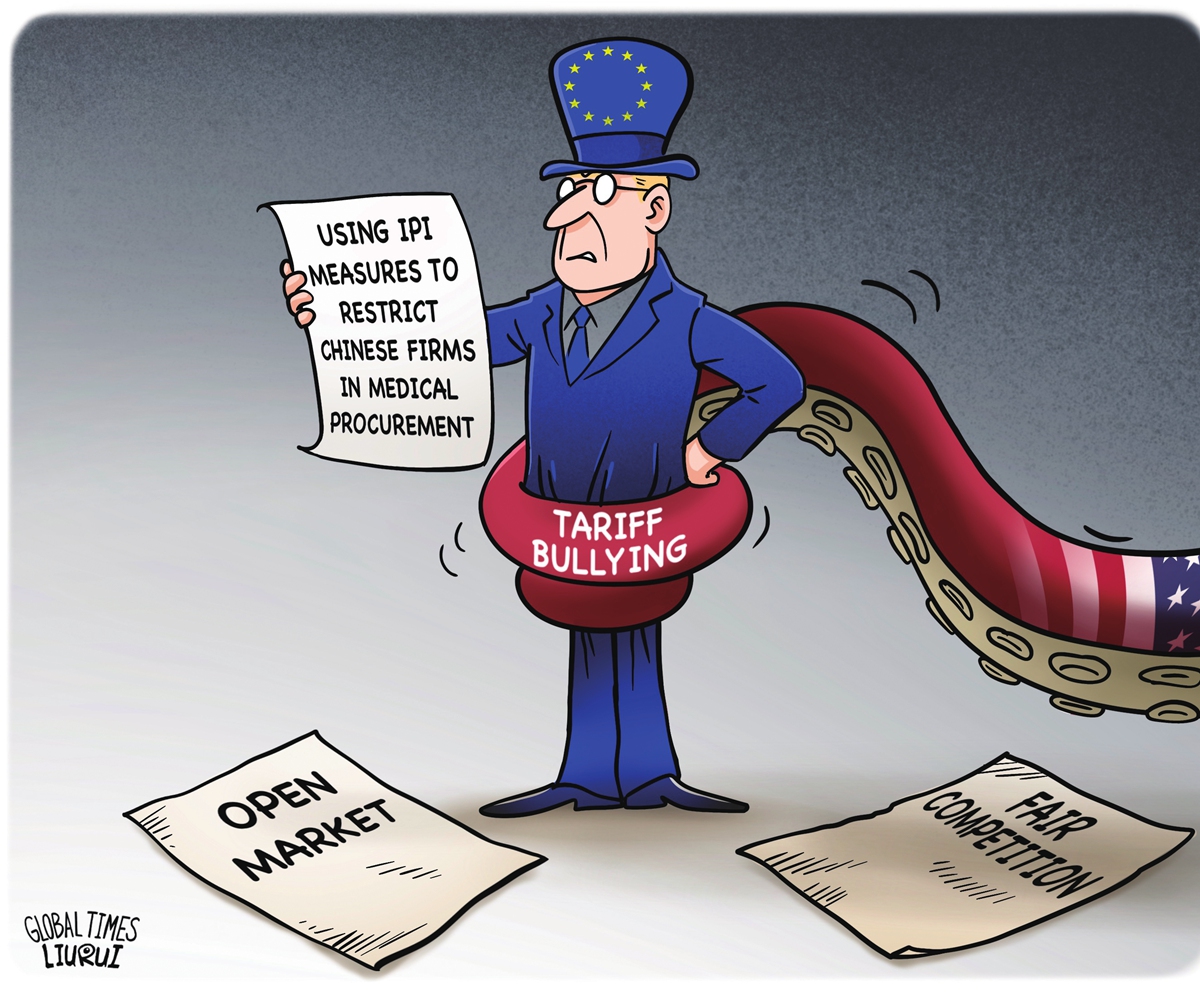
Illustration: Chen Xia/GT
European Union governments have backed a proposal to limit Chinese medical device suppliers' participation in bids for public contracts, according to the Reuters on Monday. The measures proposed by the European Commission will be the first under the EU's International Procurement Instrument (IPI), blocking Chinese firms from EU tenders worth more than €5 million ($5.2 million) for a five-year period.
The EU asserts that it is one of the most open markets in the world; however, in reality, it has been gradually moving toward protectionism. The bloc often resorts to unilateral trade measures and engages in unfair practices while claiming to promote fair competition. This exemplifies a typical double standard.
The IPI is cloaked in the rhetoric of "market reciprocity," yet it deliberately ignores a basic fact: Deep cooperation between China and the EU in the medical device sector has not only driven China's healthcare modernization, but has also generated substantial profits for European companies. As the China Chamber of Commerce to the EU noted, for years, European medical device companies have enjoyed significant access to the Chinese market, playing a key role in supporting the modernization of China's healthcare system and achieving substantial growth.
Just days ago, the US announced plans to raise tariffs on imported steel and aluminum from the EU to 50 percent. In response, Brussels said it "strongly" regrets the tariff hike and vowed to "make a strong case" during the upcoming trade talks with the US. The EU itself has been a victim of US trade bullying. Ironically, it has wielded the IPI stick against China, unfairly targeting Chinese companies while acting against the principles of an open market and fair competition.
Recent days have witnessed the rise of a new wave of so-called "China threat to EU industries" narrative within the EU bloc. As the US-EU trade talks approach, the EU's current policy direction appears to be sacrificing parts of its cooperation with China in exchange for US concessions, Cui Hongjian, a professor at the Academy of Regional and Global Governance at Beijing Foreign Studies University, told the Global Times. The expert warned that should the EU persist down this path, it would be making a grave strategic miscalculation - one unlikely to yield substantive US concessions, but instead risks undermining the progress made in China-EU ties, reducing itself to a mere auxiliary in Washington's containment strategy toward China.
In key areas such as healthcare, technology, and green transition, China and the EU have vast potential for collaboration. Against the backdrop of US disruptions to global trade norms, China-EU economic cooperation has remained resilient and thrived. According to authoritative European reports, bilateral trade between China and the EU exceeded 1.3 trillion yuan in Q1 2025. China's direct investment in the EU and UK reached €10 billion in 2024, up 47 percent year-on-year - the first increase in seven years. These figures demonstrate that China brings opportunities to Europe, not "threats."
China has always viewed Europe as an equal partner. But true cooperation is built on mutual respect. Any attempt to unfairly target China to gain leverage in trade negotiations with the US will backfire. China and the EU in reality share extensive common interests and significant potential for cooperation in many areas. Whether considering the interests of European companies or maintaining the global economic and trade order, deepening cooperation with China should be a rational choice for the EU.

